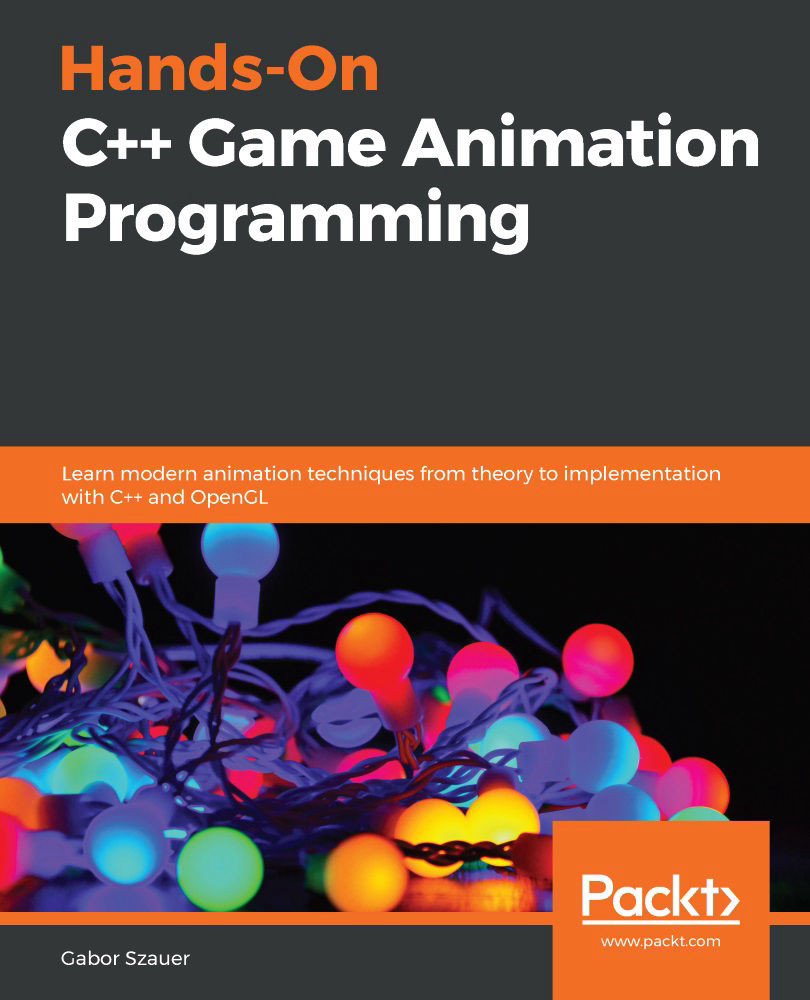Additive blending
Additive animations are used to modify an animation by adding in extra joint movements. A common example is leaning left. If there is a leaning-left animation that simply bends the character's spine, it can be added to a walking animation to create a leaning-left-while-walking animation, a running animation, or any other kind of animation.
Not all animations are a good fit for additive animations. Additive animations are usually specifically made. I have added a Lean_Left animation to the Woman.gltf file provided with the sample code for this chapter. This animation is made to be additive. It only bends one of the spine joints.
Additive animations typically don't play according to time, but rather, according to some other input. Think of leaning left as an example—it should be controlled by the user's joystick. The closer the joystick is to the left, the further in the animation the lean should go. It's common to sync the playback...







































































